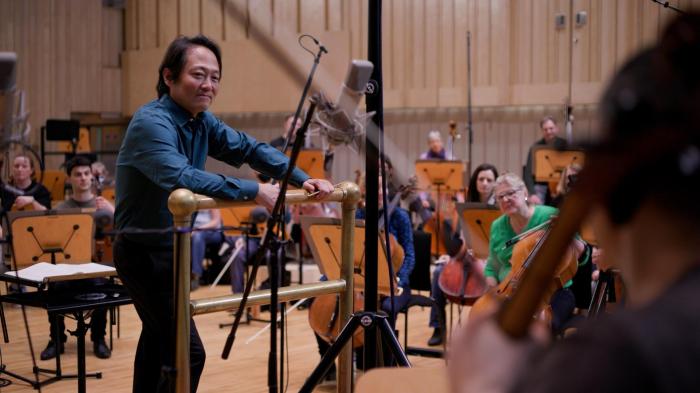Great Performances Now Hear This: Schumann: Genius and Madness presents a captivating exploration of the life and work of Robert Schumann, a renowned composer of the Romantic era. Through a comprehensive examination of his musical legacy, the impact of his mental health struggles, and his enduring influence on modern music, this documentary offers a profound insight into the complexities of a brilliant mind.
Schumann’s unique musical style and innovative compositions set him apart from his contemporaries, earning him a place among the most influential figures in music history. His exploration of Romantic themes and emotional expression resonated deeply with audiences, leaving an indelible mark on the musical landscape.
Schumann’s Musical Legacy

Robert Schumann (1810-1856) was a pivotal figure in the Romantic era of music. His compositions, both as a pianist and composer, left an indelible mark on the musical landscape. Schumann’s innovative approach to harmony, rhythm, and form set him apart from his contemporaries and influenced generations of musicians.
Influence on the Romantic Era
Schumann’s music embodied the spirit of Romanticism, characterized by its emotional intensity, subjective expression, and exploration of the inner world. His works often featured passionate melodies, intricate harmonies, and evocative rhythms that captured the full range of human emotions.
Innovative Compositions, Great performances now hear this: schumann: genius and madness
Schumann’s compositions were groundbreaking for their time. He experimented with new forms and structures, such as the song cycle and the piano suite. His piano works, in particular, pushed the boundaries of technical virtuosity and emotional expression.
Influence on Subsequent Generations
Schumann’s influence on subsequent generations of musicians was profound. His innovative compositions inspired countless composers, including Brahms, Tchaikovsky, and Wagner. His emphasis on emotional expression and subjective experience paved the way for the development of modern music.
The Genius of Schumann

Schumann’s musical genius was evident in his unique style and compositional techniques. He possessed an extraordinary ability to convey emotions through music, capturing the subtle nuances of the human experience.
Unique Musical Style
Schumann’s music is characterized by its lyrical melodies, rich harmonies, and intricate rhythms. He often employed contrasting themes and sections, creating a sense of tension and release that heightened the emotional impact of his works.
Compositional Techniques
Schumann’s compositional techniques were innovative and influential. He experimented with irregular rhythms, syncopations, and chromatic harmonies, creating a distinctive and expressive sound. His use of the piano as a solo instrument and in chamber music was also groundbreaking.
Exploration of Romantic Themes
Schumann’s music frequently explored Romantic themes such as love, nature, and the supernatural. His compositions often reflected his own personal experiences and emotions, adding a depth and authenticity to his works.
The Madness of Schumann: Great Performances Now Hear This: Schumann: Genius And Madness

Schumann’s life was tragically marred by mental health struggles. He suffered from bipolar disorder, which manifested as periods of intense creativity followed by debilitating depression.
Mental Health Struggles
Schumann’s mental health issues began to manifest in his early 30s. He experienced hallucinations, delusions, and periods of extreme mood swings. These episodes often disrupted his ability to compose and perform.
Impact on Personal Life and Career
Schumann’s mental illness had a profound impact on his personal life and career. His marriage to Clara Wieck, a renowned pianist, was strained by his condition. He was forced to retire from composing and performing during periods of severe illness.
Relationship to Creative Output
The relationship between Schumann’s illness and his creative output is complex. While his episodes of depression hindered his ability to compose, some scholars believe that his manic periods fueled his creative inspiration.
Schumann’s Influence on Modern Music

Schumann’s music continues to exert a significant influence on modern music. His innovative compositions and exploration of Romantic themes have inspired countless composers and performers.
Influence on Later Composers
Schumann’s influence can be seen in the works of later composers such as Brahms, Tchaikovsky, and Mahler. His use of harmony, rhythm, and form provided a foundation for the development of Romantic and post-Romantic music.
Adoption and Adaptation of Musical Elements
Specific works and musical elements from Schumann’s compositions have been adopted and adapted by subsequent generations of musicians. For example, his song cycle “Dichterliebe” has been performed and recorded by numerous singers and pianists.
Enduring Legacy in Contemporary Music
Schumann’s legacy extends beyond classical music. His influence can be found in jazz, rock, and film music. His compositions continue to be performed and studied, inspiring new generations of musicians.
Top FAQs
What was Robert Schumann’s most famous work?
Schumann is known for his piano compositions, including his Carnaval, Kreisleriana, and Kinderszenen.
How did Schumann’s mental health struggles affect his music?
Schumann’s bipolar disorder influenced his creative output, leading to periods of intense productivity and depression.
What is the legacy of Schumann’s music?
Schumann’s music continues to be performed and studied, inspiring and influencing musicians and audiences worldwide.